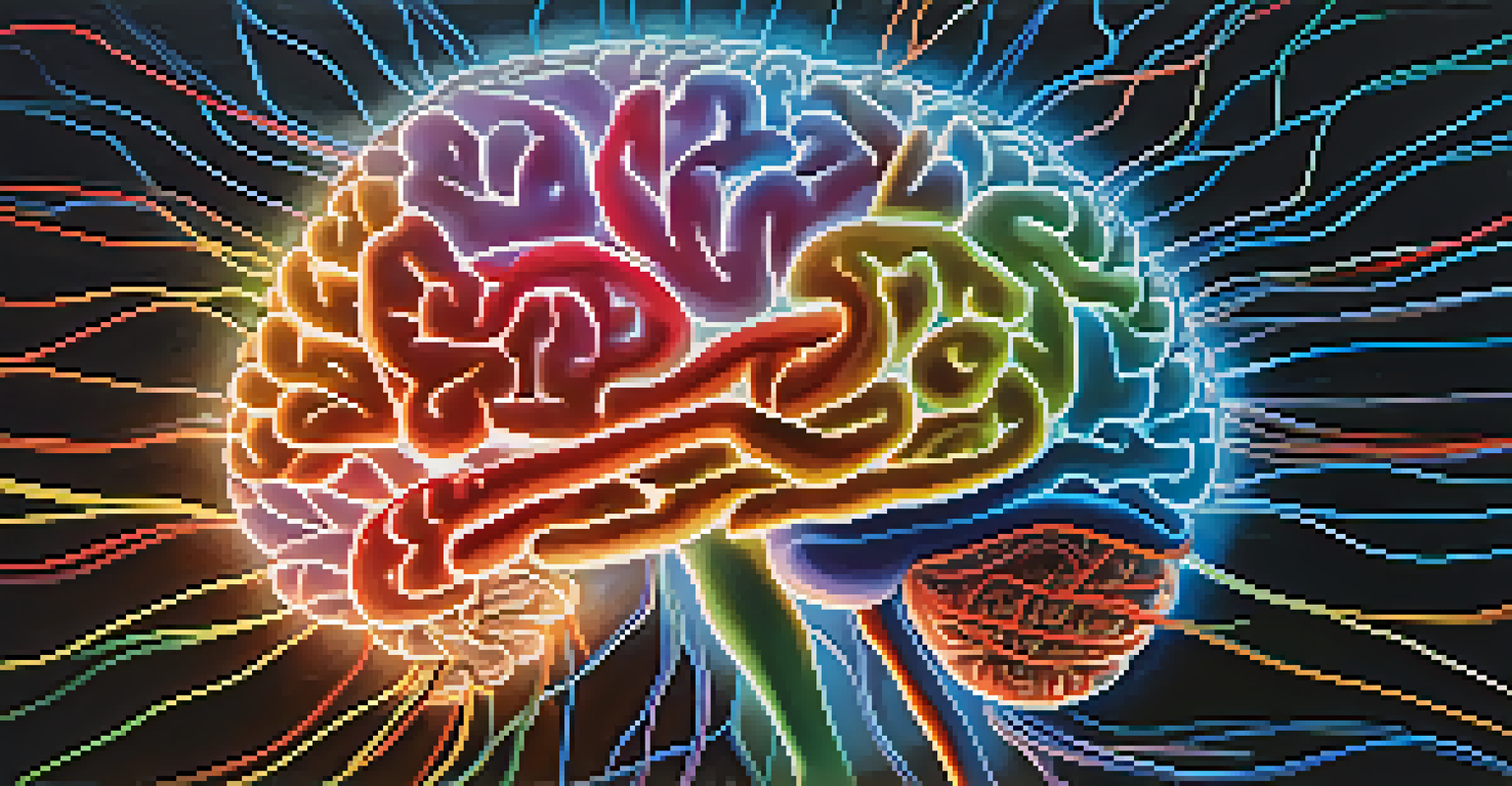The Role of Hallucinogens in Enhancing Memory Retention

Understanding Hallucinogens and Their Effects
Hallucinogens are substances that alter perception, mood, and cognitive processes. Common examples include psilocybin, found in magic mushrooms, and LSD. These compounds can create vivid sensory experiences that may change how we perceive reality and ourselves.
The mind is everything. What you think you become.
While they are often associated with recreational use, there’s a growing interest in their therapeutic benefits. Research has begun to explore how these substances might influence brain function, particularly in areas related to memory and learning. The idea that they could enhance memory retention is both intriguing and controversial.
Understanding how hallucinogens work at the neurological level can help demystify their effects. They often interact with serotonin receptors in the brain, which play a crucial role in mood regulation and cognition. This interaction could potentially lead to improvements in memory and information recall.
The Science Behind Memory Retention
Memory retention involves a series of complex processes that allow us to encode, store, and retrieve information. Understanding how these processes work can shed light on how hallucinogens might influence them. Key stages include encoding, consolidation, and retrieval, each playing a vital role in how we remember experiences.

Research indicates that certain hallucinogens may enhance neuroplasticity, the brain's ability to reorganize itself by forming new neural connections. This can be particularly beneficial for memory retention, as stronger connections can lead to better recall. Imagine your brain as a network of roads; hallucinogens might help create new paths that make it easier to access information.
Hallucinogens Impact Memory Retention
Research suggests that hallucinogens like psilocybin may enhance memory retention by promoting neuroplasticity and altering perception.
Additionally, hallucinogens can induce altered states of consciousness that may allow individuals to process experiences differently. This unique perspective might facilitate deeper understanding and integration of memories, leading to longer-lasting retention.
Clinical Studies on Hallucinogens and Memory
Several clinical studies have examined the effects of hallucinogens on memory retention, especially in therapeutic settings. For instance, research involving psilocybin has shown promising results in enhancing emotional memory. Participants often report more vivid and meaningful recollections after their experiences.
Creativity is intelligence having fun.
One particularly interesting study involved patients with depression, who found that their memories of positive experiences became more salient after treatment with hallucinogens. This suggests that the emotional context of memories might be enhanced, making it easier to retain and recall important information.
These findings point to the potential of hallucinogens not just for therapeutic use, but also as tools for enhancing cognitive functions like memory. However, more extensive research is needed to fully understand the implications of these effects.
Potential Risks and Considerations
While the potential benefits of hallucinogens are intriguing, it's important to consider the associated risks. Hallucinogens can lead to unpredictable psychological effects, including anxiety and paranoia, which can hinder memory rather than enhance it. For some, the experience can be overwhelming and disorienting.
Furthermore, the legality and ethical considerations surrounding the use of hallucinogens complicate their potential use in memory enhancement. In many places, these substances remain illegal, which can limit research and access. There is also a concern about the potential for misuse or over-reliance on these substances for cognitive enhancement.
Therapeutic Potential of Hallucinogens
Clinical studies indicate hallucinogens could be beneficial in therapeutic settings, particularly for enhancing emotional memory in patients.
Understanding these risks is crucial for anyone considering the use of hallucinogens. It’s essential to approach the topic with caution, weighing the potential benefits against the possible adverse effects.
Hallucinogens and Creativity: A Connection to Memory
Interestingly, hallucinogens have long been associated with enhanced creativity, which can indirectly influence memory retention. Creative thinking often involves making unique connections between disparate ideas, a process that can be facilitated by altered states of consciousness. This creative shift may help in encoding memories in a more distinctive manner.
For example, artists and writers have historically used hallucinogens to unlock new ways of thinking and exploring concepts. This creative boost can lead to richer, more memorable experiences. When you think outside the box, you’re more likely to remember those experiences later.
The link between creativity and memory suggests that hallucinogens might serve as tools for those looking to enhance their cognitive processes. However, this area of research is still in its infancy and warrants further exploration.
Personal Anecdotes and Experiences with Memory
Many individuals who have experimented with hallucinogens report profound changes in their perception of memory. Some share stories of how a single experience led them to recall forgotten memories or to view past events with a new perspective. These anecdotes highlight the subjective nature of memory and how it can be influenced by altered states.
For instance, a person might use hallucinogens to revisit a childhood memory, only to discover new layers of emotion and understanding. This process can feel cathartic, leading to lasting changes in how they remember that experience. Such stories often emphasize the personal growth that can accompany these experiences.
Risks of Hallucinogen Use
Despite potential benefits, hallucinogens carry risks such as unpredictable psychological effects, which must be carefully considered.
While personal anecdotes provide insight, they also remind us that everyone’s experience with hallucinogens is unique. What enhances memory for one person may not have the same effect on another, making it essential to approach the subject with an open mind and a sense of curiosity.
Future Directions in Research on Hallucinogens and Memory
As interest in the therapeutic potential of hallucinogens grows, so does the need for more rigorous scientific research. Future studies will likely focus on understanding the specific mechanisms through which hallucinogens impact memory retention. This could involve exploring different dosages, types of substances, and their effects on various demographics.
Additionally, researchers may investigate the long-term effects of hallucinogen use on memory. Are the changes lasting, or do they fade over time? Understanding this aspect could be crucial in determining how these substances might be effectively used in therapeutic settings.

The conversation about hallucinogens and memory retention is just beginning. With ongoing research and an open dialogue, we may uncover new ways to harness their potential to enhance cognitive functions and improve mental health.